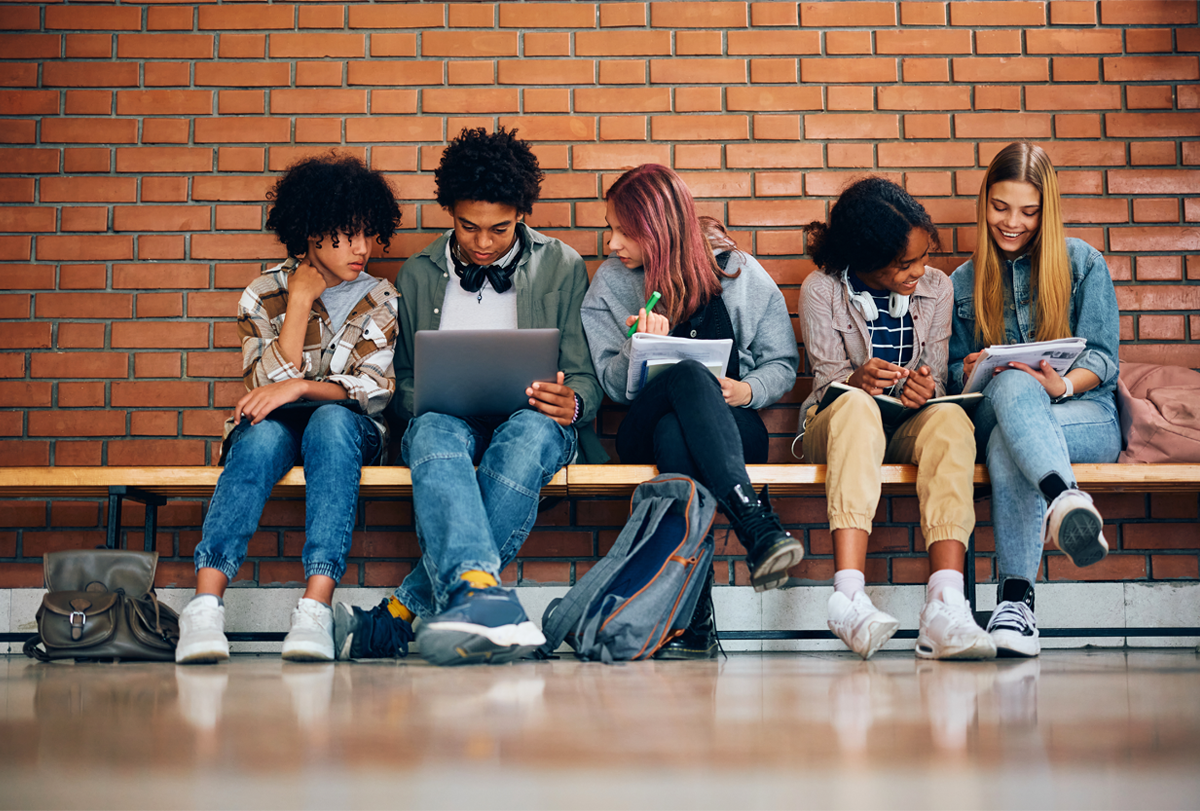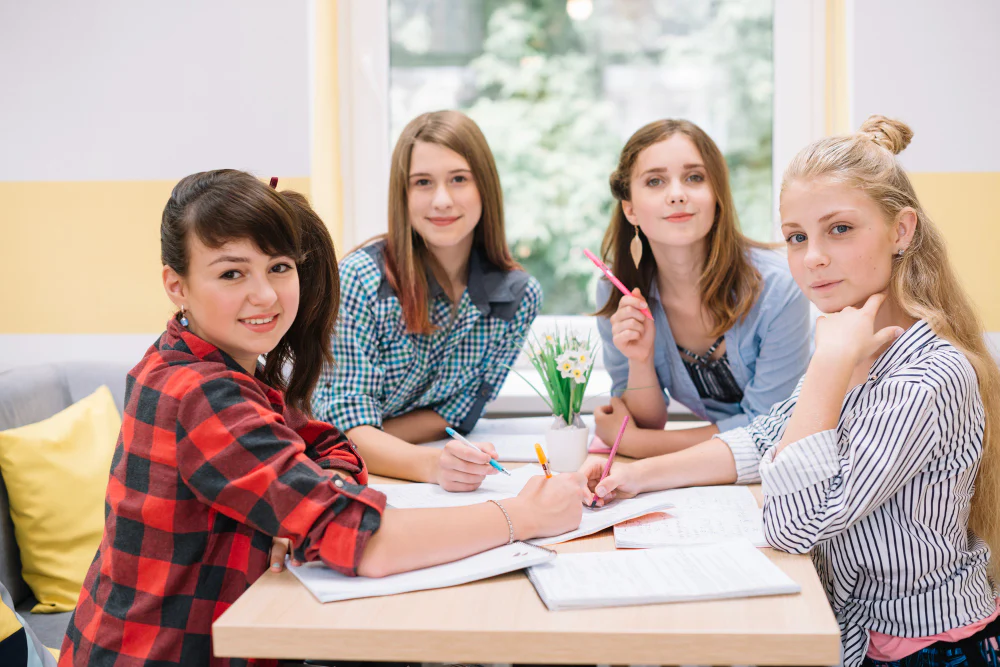JAKARTA, studyinca.ac.id – In the dynamic environment of a school, the ability to build relationships is crucial for both academic success and personal development. Social skills play a vital role in helping students connect with peers, teachers, and the broader community. This article explores the importance of social skills in school settings and provides effective strategies for students to enhance their interpersonal abilities and foster meaningful relationships.
Understanding Social Skills

What are Social Skills?
Social skills refer to the abilities that enable individuals to interact effectively and harmoniously with others. These skills encompass a range of behaviors, including communication, empathy, active listening, and conflict resolution. Developing strong social skills is essential for navigating social situations, forming friendships, and collaborating with others.
The Importance of Social Skills in School
- Academic Success: Students with strong social skills are better equipped to participate in group projects, engage in discussions, and seek help when needed. Effective communication fosters a collaborative learning environment.
- Emotional Well-Being: Building positive relationships with peers and teachers contributes to a supportive school climate. Students who feel connected are more likely to experience higher levels of happiness and lower levels of stress.
- Future Preparedness: In today’s interconnected world, employers value candidates with strong social skills. Developing these abilities in school prepares students for successful careers and meaningful relationships in adulthood.
Strategies for Developing Social Skills
1. Encouraging Open Communication
Active Listening
Active listening is a fundamental component of effective communication. It involves fully concentrating on what others are saying and responding thoughtfully.
- Action Steps:
- Practice summarizing what someone has said before responding to ensure understanding.
- Encourage students to ask open-ended questions to promote deeper conversations.
Sharing Thoughts and Feelings
Encouraging students to express their thoughts and feelings openly fosters a culture of honesty and trust.
- Action Steps:
- Create safe spaces in classrooms where students can share their experiences and emotions.
- Use activities like journaling or discussion circles to facilitate sharing.
2. Building Empathy
Understanding Others’ Perspectives
Empathy is the ability to understand and share the feelings of others. Developing this skill is crucial for forming meaningful relationships.
- Action Steps:
- Engage students in role-playing activities that allow them to step into someone else’s shoes.
- Discuss scenarios where students can practice identifying emotions and responses.
Community Service Projects
Participating in community service helps students connect with others and understand diverse perspectives.
- Action Steps:
- Organize volunteer opportunities that encourage teamwork and collaboration.
- Reflect on experiences as a group to discuss feelings and insights gained from helping others.
3. Promoting Teamwork and Collaboration
Group Activities
Group activities are an excellent way to practice social skills and learn how to work effectively with others.
- Action Steps:
- Incorporate cooperative learning strategies in the classroom, such as group projects and peer teaching.
- Assign roles within groups to ensure everyone contributes and learns from each other.
Sports and Extracurricular Activities
Participating in sports and extracurricular activities fosters teamwork and communication skills.
- Action Steps:
- Encourage students to join clubs or teams that align with their interests.
- Emphasize the importance of collaboration and support in achieving common goals.
4. Teaching Conflict Resolution
Identifying Conflicts
Teaching students to recognize conflicts and address them constructively is essential for developing social skills.
- Action Steps:
- Discuss common conflicts that arise in school and brainstorm potential solutions as a class.
- Role-play conflict scenarios to practice resolution techniques.
Mediation Techniques
Empowering students to mediate conflicts among peers promotes responsibility and leadership.
- Action Steps:
- Train students in basic mediation techniques, such as active listening and finding common ground.
- Establish a peer mediation program where students can help resolve conflicts amicably.
5. Modeling Positive Social Behaviors
Teacher and Peer Role Models
Teachers and peers play a significant role in shaping students’ social skills. Positive role modeling can influence students’ behavior and attitudes.
- Action Steps:
- Demonstrate effective communication and conflict resolution strategies in daily interactions.
- Encourage students to recognize and appreciate positive social behaviors in their peers.
Creating a Supportive Environment
A supportive school environment fosters the development of social skills. Students should feel safe and valued within their school community.
- Action Steps:
- Promote a culture of respect and kindness through school-wide initiatives and programs.
- Recognize and celebrate students’ achievements in building relationships and demonstrating social skills.
Measuring the Impact of Social Skills Development
1. Observational Assessments
Teachers can observe student interactions to assess the development of social skills. Noting improvements in communication, collaboration, and conflict resolution can provide valuable insights.
2. Student Feedback
Gathering feedback from students about their experiences can help evaluate the effectiveness of social skills programs. Surveys and discussions can reveal areas of strength and opportunities for improvement.
3. Academic and Behavioral Outcomes
Monitoring academic performance and behavioral incidents can help measure the impact of social skills development. Improvements in these areas may indicate successful engagement in social skills training.
Conclusion
Developing social skills is essential for students to build meaningful relationships and succeed in both academic and personal contexts. By implementing effective strategies such as encouraging open communication, building empathy, promoting teamwork, teaching conflict resolution, and modeling positive behaviors, schools can foster an environment where students thrive.
As we prioritize social skills development, we empower young minds to navigate their social worlds with confidence and compassion. By investing in these essential skills, we prepare students for a brighter future filled with meaningful connections and opportunities.
Improve Your Abilities: Explore Our content on Knowledge
Take a Look at Our Latest Article on Inquiry Learning

